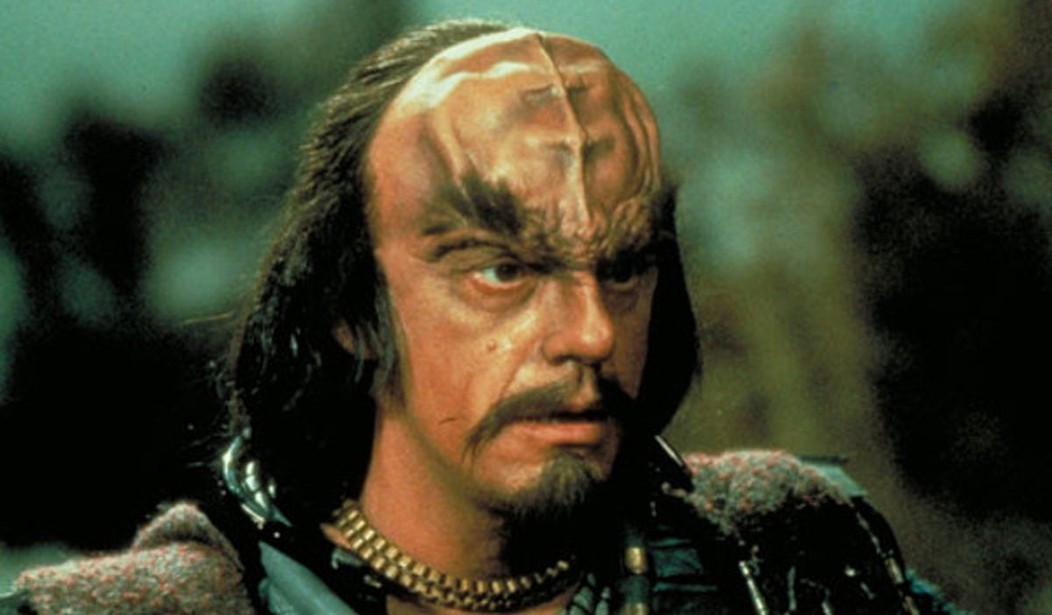An interesting copyright case is beginning to move through the courts with far ranging repercussions for free speech.
Paramount Pictures is claiming that the language of the Klingons – the alien race that started out as human enemies in the Star Trek universe but ended up our friends – is copyright and belongs solely to them. They base this claim on the fact that the studio hired a linguist to create the Klingon language in the film Star Trek III: The Search for Spock – Marc Okrand. The studio is suing the producers of a fan-produced film called Axanar, set in the Star Trek universe.
An amicus brief has been filed in the case by Language Creation Society that makes several of its points in the Klingon language.
The amicus brief is peppered with Klingon words and phrases, even quoting The Big Lebowski in Klingon, “not Qam ghu’vam” (“This will not stand, man”) in response to the idea that anyone expressing anything in Klingon would be a copyright infringer if Paramount owned the actual language. The brief mentions Eddie Dean, whose dad taught him Klingon at an early age.
“To claim copyright in a language is to claim ownership over all possible thoughts and artistic expression that might employ that language,” the attorneys argue in the amicus brief. “If not ownership, such a claim at least provides some support for the idea that the copyright owner could, at some point, simply pull the plug on any future development in the language.”
The Framers, the brief argues, would have an analogy—the Académie Française, which regulates the entirety of the French language.
“In effect, significant parts of French are constructed,” the attorneys argue. “The Framers would have been shocked to learn that they might be prohibited from writing and speaking in French were the Academy to register copyright in its constructions. However, that would be the eventual result, if this court commits the qaq of blessing Paramount’s claim to the intellectual property inherent in a language.”
The attorneys point to previous case law, including on constructed programming languages. In Computer Assocs. Int’l v. Alta, the court found terms in programming languages that were required to accomplish tasks in an operating system were not copyright-protected. In Zalewski v. Cicero Builder, meanwhile, the, brief points out that court found that “if an idea ‘can only be expressed in a limited number of ways,’ those means of expression ‘cannot be protected, lest one author own the idea itself.'”
“Copyright law protects the means of expressing ideas or concepts, but it does not give the copyright holder the right to exclude others from making use of the ideas or concepts themselves,” the brief argues. “Neither is one permitted to register copyright in a word.”
One can understand the position of the defendants. It’s soundly based on the First Amendment. While the actual creation of the language may have been Paramount’s doing, no one should have a monopoly on the words and the thoughts behind them.
Paramount is not only suing because of the use of the Klingon language, they claim Axanar violates copyrights on hundreds of other examples, including the use of the term “phasers” and portraying several alien characters from the franchise, including Vulcans.
But it’s hard to know what a federal judge is going to do with regard to the First Amendment. The amended suit was filed in March so it will be a while before a judgment is handed down.









Join the conversation as a VIP Member